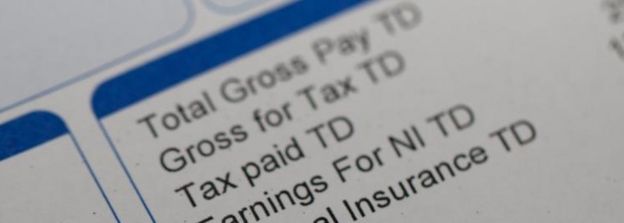 Chancellor Rishi Sunak's first Budget came as attention is focused on coronavirus, but what does it mean for your financial health?
Chancellor Rishi Sunak's first Budget came as attention is focused on coronavirus, but what does it mean for your financial health?
There were significant announcements on benefits, tax, and the wider economy.
A tax cut for millions
A tax break from the government regarding national insurance was promised in the Conservative manifesto.
The current threshold sees employees and the self-employed paying contributions once they earn £166 a week, equivalent to an annual salary of £8,632 a year. From April, you start paying when earning £9,500. That will mean 500,000 people will no longer have to pay this tax, according to independent economists at the Institute for Fiscal Studies (IFS).
That will mean 500,000 people will no longer have to pay this tax, according to independent economists at the Institute for Fiscal Studies (IFS).
 That will mean 500,000 people will no longer have to pay this tax, according to independent economists at the Institute for Fiscal Studies (IFS).
That will mean 500,000 people will no longer have to pay this tax, according to independent economists at the Institute for Fiscal Studies (IFS).
Those still paying will save up to £85 a year on average. The chancellor said it would be just over £100 a year, but that calculation may not include the self-employed.
The IFS says 8% of the gains go to the poorest 20% of working households, so it is those on a decent income who may benefit the most. However, those working in a number of low-paying part-time jobs could see their take-home pay increase significantly.
Another tax to be cut is VAT on digital books, newspapers and magazines.
What happens if coronavirus hits my finances?
Many of the measures aimed to tackle the impact of coronavirus benefit small businesses and so protect some jobs. This has been coordinated with the interest rate cut announced by the Bank of England.
Specific personal finance changes include the chancellor saying all of those advised to self-isolate, even if they do not show symptoms, are to receive statutory sick pay if eligible.
show symptoms, are to receive statutory sick pay if eligible.
 show symptoms, are to receive statutory sick pay if eligible.
show symptoms, are to receive statutory sick pay if eligible.
UK employees have already started to get statutory sick pay from the first day off work, to help contain coronavirus. This is paid by the employer, but smaller businesses with fewer than 250 employees can reclaim the cost of paying sick pay for the 14 days of isolation
Those who are not eligible for sick pay, particularly the self-employed, will be able to claim Employment and Support Allowance (ESA) from day one of "illness" rather than day eight.
ESA is paid to those who are too sick to work, provided they meet certain conditions. It is worth £73.10 a week, or £57.90 for the under-25s. The complexity of this benefit may mean this change is unlikely to affect a lot of people.
Councils will also have access to a hardship fund to help vulnerable people in their area.
Comments